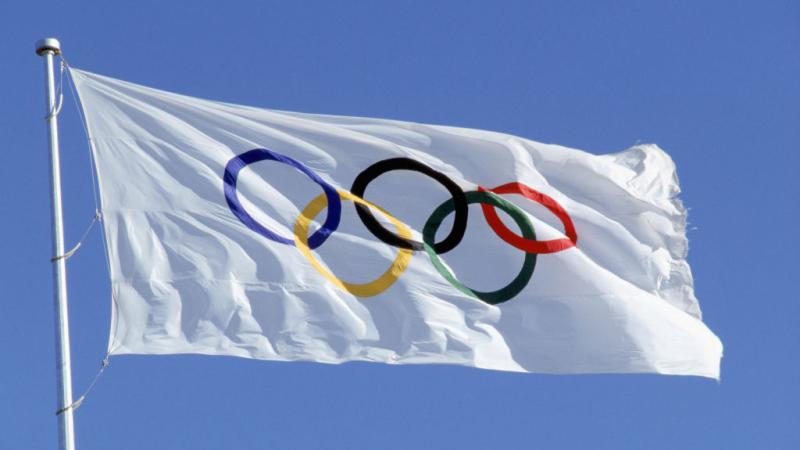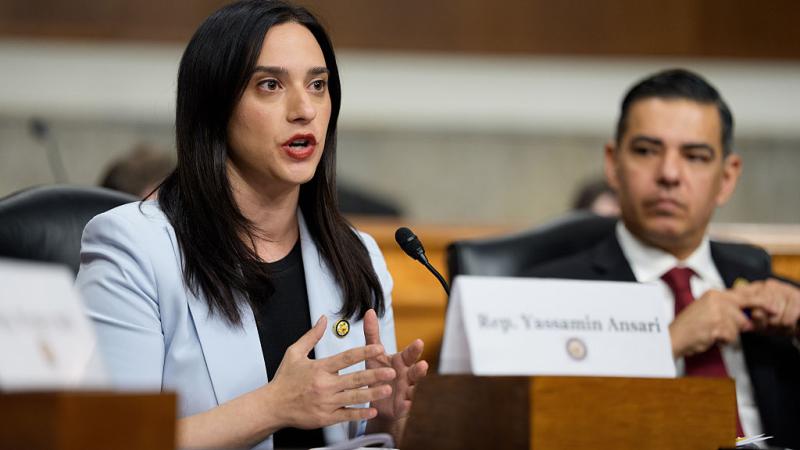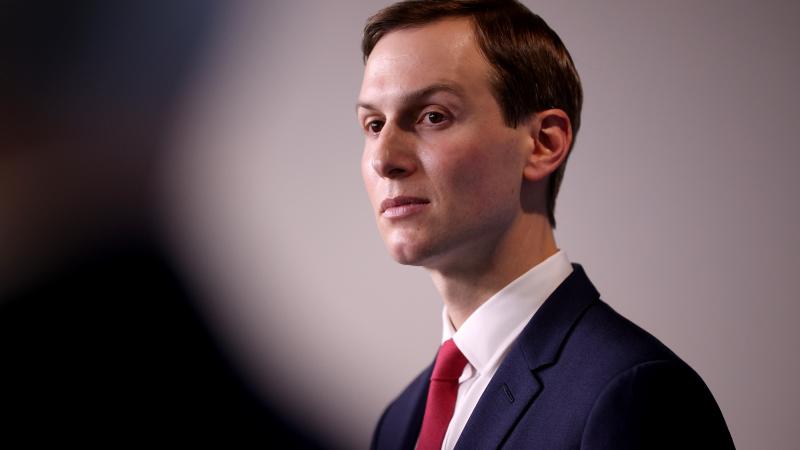DEI disciples sue Trump for censoring them with funding cutoff, but can't define DEI
Trump said the "quiet part out loud" in executive order against "radical indoctrination" in K-12 schools, which mimicked first-term "divisive concepts" order blocked in court, says suit by Democratic election lawyer Marc Elias.
College diversity officers, restaurant labor activists, professors and politicians who lead and benefit from federally funded diversity, equity and inclusion programs aren't sure what "DEI" means.
On Monday, they sued President Trump and 11 federal entities, from the Department of Education to the National Science Foundation and Office of Management and Budget (OMB), to block Trump's executive orders against DEI programs and in favor of "merit-based opportunity," calling them unconstitutionally vague and censorious.
"In the United States, there is no king," says the complaint by the National Association of Diversity Officers in Higher Education, American Association of University Professors, Restaurant Opportunities Centers United and Baltimore Democratic Mayor Brandon Scott and his city council.
"In his crusade to erase diversity, equity, inclusion, and accessibility [DEIA] from our country, President Trump cannot usurp Congress’s exclusive power of the purse, nor can he silence those who disagree with him by threatening them with the loss of federal funds and other enforcement actions," the suit says.
They are represented by Asian Americans Advancing Justice, which defended the federal censorship of an Asian-American rock band against a unanimous Supreme Court, and the Democracy Forward Foundation, founded by Democratic Party elites and chaired by Democratic election lawyer Marc Elias, known for his role in the Trump-Russia collusion story.
The progressive push to preserve federally funded DEI comes as the Democratic National Committee rejected the concept by electing two white men whose gender identity aligns with their male sex as its chair and vice chair.
Lawsuits against Trump's executive orders are steadily mounting, with 33 as of Wednesday afternoon, according to the litigation tracker maintained by Just Security, a group blog by New York University's law school. The DEI order has received scant legal attention relative to those on immigration, government structure and gender identity.
The DEI order is among several policies already hit with temporary restraining orders, including OMB's directive to agencies to "temporarily pause" financial assistance "for foreign aid, nongovernmental organizations, DEI, woke gender ideology, and the green new deal."
President Biden-nominated U.S. District Judge Loren AliKhan said Monday the "must" language "led to legal consequences and constituted final agency action" under the Administrative Procedure Act, and that the directive likely violated the APA's prohibition on "arbitrary and capricious" agency actions.
Though OMB rescinded the memo a day after AliKhan's initial temporary restraining order on Jan. 28, White House press secretary Karoline Leavitt's assurance that Trump's EOs on federal funding "remain in full force and effect" showed that "OMB sought to overcome a judicially imposed obstacle without actually ceasing the challenged conduct," which is "disingenuous," AliKhan wrote.
Leavitt's social media post also popped up in the DEI order lawsuit, as did the Justice Department's Monday notice of compliance with a TRO in another challenge to the OMB directive. DOJ said the TRO doesn't block Trump's executive orders, "which are plainly lawful and unchallenged in this case," or bind non-defendant agencies.
Trump's DEI order didn't define "DEI," "DEIA" or "environmental justice," also targeted for defunding, or the term “equity-related" in a directive to terminate such grants, the suit says. The merit-based order, which threatens "civil investigations and loss of funding," didn't define key terms such as "illegal DEI" or "illegal discrimination or preferences" either.
"President Trump’s history and explicit call to dismantle anything connected to DEIA presses the question of which 'programs promoting DEI' President Trump views as 'illegal,'" the suit says.
"A general statement about nominal adherence to the law does not suffice to evade judicial review, particularly in the face of real-world facts as detailed elsewhere in this Complaint that the President is attempting to ban all DEI, legal or otherwise," according to the complaint.
Because the merit order invokes the False Claims Act in requiring funding recipients to certify they don't operate programs "promoting" DEI in violation of federal anti-discrimination laws, the plaintiffs "must either risk prosecution for making a false claim, or censor promotion of their values," the suit says.
The merit order also tasks agencies with identifying civil compliance investigations in sectors including colleges with endowments over $1 billion.
That gives large institutional members of NADOHE an "untenable choice" between promoting "lawful" DEIA or ending Trump-disapproved programs "about this country’s history on issues of enslavement, racial exclusion, health disparities, gender inequality, treatment of individuals with disabilities, and discrimination," the suit says.
Contrary to Trump's rebranding of DEI as "discriminatory equity ideology," DEIA represents nothing more than "ensuring that all have equal opportunity" and its principles are "foundational to the nation’s promise of equality for all and equal justice under the law," the suit says.
Even as they accuse Trump of vague definitions, the plaintiffs do not appear to define "equity" in isolation and actually conflate it with its opposite, equality.
The United Way of the National Capital Area, for example, defines equity as "allocating resources and opportunities based on individual needs to create equal outcomes for all community members" – preferential treatment to groups perceived as lacking.
Each plaintiff explains how DEIA is crucial to its mission, from "ensuring an inclusive, supportive environment" for marginalized groups including women – who are far more successful in higher ed than men – to protecting and expanding "academic freedom and shared governance" and enabling breakthroughs in science and medicine.
The non-education plaintiffs say DEIA opens access to "livable-wage jobs historically held by white men" in the restaurant industry and even benefits Baltimore's tourism industry through the city's free DEIA training to Baltimore businesses.
The civil investigation section of the merit order potentially ensnares more than 120 higher education institutions with billion-dollar endowments and "offers no criteria" for picking targets or telling them "what they can do to stay off the target list."
It does not "recognize that the question of a program’s legality is a fact-intensive exercise left to courts and other adjudicatory bodies that are well-equipped to apply the facts to existing anti-discrimination laws," the suit says.
Trump said the "quiet part out loud" in his EO against "radical indoctrination" in K-12 schools, which defines "discriminatory equity ideology" nearly the same as his first-term "divisive concepts" EO against "race and sex stereotyping and scapegoating," which a federal judge blocked nationwide on free speech and vagueness grounds, the plaintiffs say.
The Facts Inside Our Reporter's Notebook
Videos
Links
- They sued President Trump and 11 federal entities
- executive orders against DEI programs
- "merit-based opportunity
- Asian Americans Advancing Justice
- federal censorship of an Asian American rock band
- Democracy Forward Foundation
- Marc Elias
- role in the Trump-Russia collusion story
- Democratic National Committee rejected the concept by electing two white men
- Lawsuits against Trump's executive orders
- litigation tracker
- Loren AliKhan said Monday the "must" language "led to legal consequences
- OMB rescinded the memo
- Karoline Leavitt's assurance that Trump's EOs
- Justice Department's Monday notice of compliance with a TRO
- Trump's rebranding of DEI
- United Way of the National Capital Area
- women â who are far more successful in higher ed than men
- EO against "radical indoctrination" in K-12 schools
- first-term "divisive concepts" EO
- federal judge blocked nationwide















